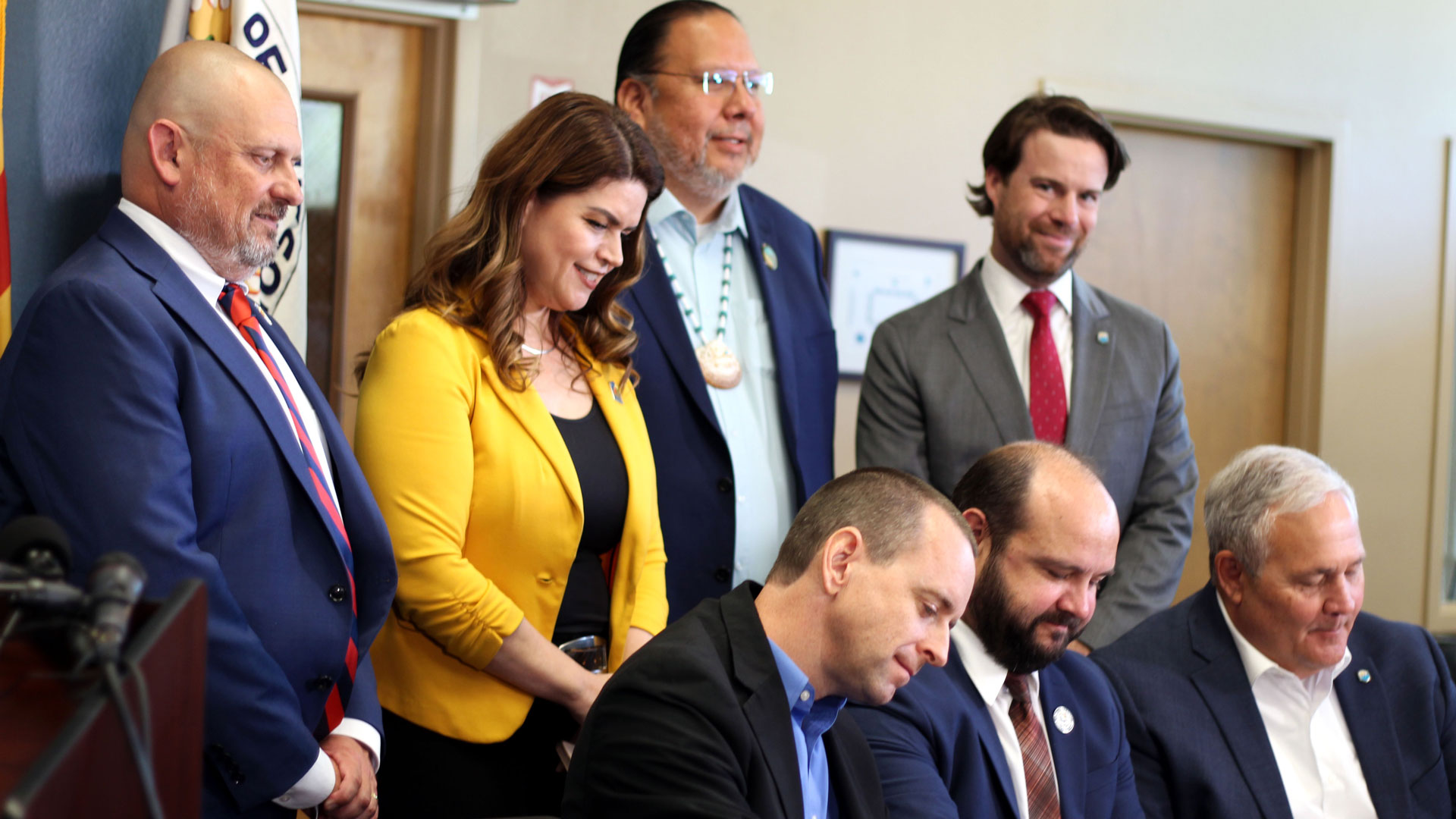 The City of Tucson will voluntarily reduce its water allocations from the Colorado River by up to 110,000 acre-feet through 2025. The multi-year agreement was signed by Mayor Regina Romero, alongside the Bureau of Reclamation through the Central Arizona Project (CAP) on Wednesday, May 24.
The City of Tucson will voluntarily reduce its water allocations from the Colorado River by up to 110,000 acre-feet through 2025. The multi-year agreement was signed by Mayor Regina Romero, alongside the Bureau of Reclamation through the Central Arizona Project (CAP) on Wednesday, May 24.
Mayor Regina Romero signed a multi-year agreement with the Bureau of Reclamation through the Central Arizona Project, significantly reducing Tucson’s water allocations from the Colorado River by up to 110,000 acre-feet.
The voluntary deal offers the City of Tucson $400 per acre-foot as compensation for every unit conserved, in exchange for signing the Conservation Implementation Agreement (CIA.)
The agreement falls under the Inflation Reduction Act of 2022.
Director of Tucson Water John Kmiec said critical infrastructure projects to reduce water loss and encourage conservation are on the horizon. He said will turn back 50,000 acre-feet of water in Lake Mead this year.
“What’s happening actively is there’s an agreement with the three lower basin states of the seven, with the Bureau of Reclamation to come up with a 3 million acre-feet savings plan for the next couple of years,” Kmiec said.
By 2026, adjustments will be determined for states’ entitlements to the Colorado River.
Deputy Commissioner from the Bureau of Reclamation Michael Brain said the two system agreements signed, along with six others being finalized will conserve up to 393,000 acre feet of water in Lake Mead.
“The Lower Colorado River Basin system conservation and efficiency program is one of the primary tools we can use to address, improve and protect the stability of the Colorado River system,” Brain said.
Assistant general manager for the Central Arizona Project Patrick Dent said a pilot conservation system for Lake Mead began almost ten years ago and said that those efforts have been expanded today.
Agreements and projects which are part of the program will increase water conservation, improve water efficiency, and prevent the Colorado River system’s reservoirs from falling to critically low elevations, threatening water deliveries and hydropower production.
The Colorado River supports 40 million westerners including tribes, farmers, cities, and ecosystems.
Governor Stephen Roe Lewis from the Gila River Indian Community said last month the community committed up to 125,000 acre-feet of Colorado River entitlement for the next three years.
“The Gila River Indian Community stressed that it would take an all-of-government approach to address the drought in this region,” Lewis said.
Metro District Water General Manager Joe Olsen said in 2019, Metro District Water entered into a compensated system conservation agreement with CAP and continued that partnership with the Bureau and CAP last year under the 500 Plus Plan.
“Since 2019, we have deployed 100% of our CAP allocation to support the goals of the drought contingency plan with 25% of our CAP allocation directed towards compensated system conservation," Olsen said.
The remaining 75% is deferred to Pima County agricultural users.
Olsen said MWD has spent money on the construction of recharged facility upgrades and conveyance systems to ensure and fully utilize the renewable water portfolio.
“Under this current agreement, we have increased the amount of water that we are setting aside for compensated system conservation from 25% up to 40%,” Olsen said.
The proactive measures will occur throughout the three-year plan.

By submitting your comments, you hereby give AZPM the right to post your comments and potentially use them in any other form of media operated by this institution.